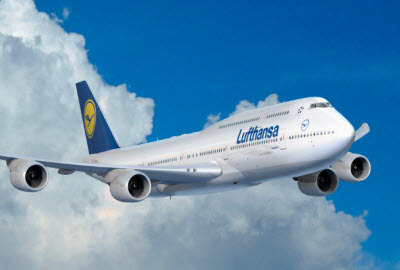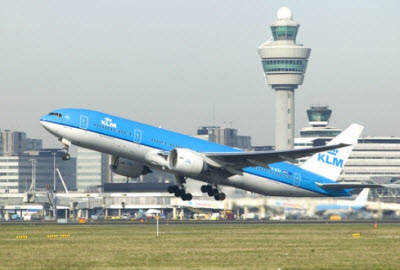EU Debate On Flying With Dementia
- Written by Roberto Castiglioni
 The debate on the subject of flying with mental conditions like dementia sees EU authorities point to the need for good practice and appropriate staff training.
The debate on the subject of flying with mental conditions like dementia sees EU authorities point to the need for good practice and appropriate staff training.
News of European airlines strongly recommending people with dementia should fly accompanied lead us to speak on the subject of invisible disabilities with Ruth Lopian, Policy Officer of the Passenger Rights Unit of the Directorate General for Mobility and Transport of European Commission.
Reduced Mobility Rights has been spearheading the awareness campaign on flying with dementia, becoming the first European website to provide tips and a full checklist for flying mental conditions in 2013. This year Reduced Mobility Rights presented a paper on flying with Alzheimer’s at the Passenger Terminal EXPO 2014 in Barcelona, reminding airports of the challenge the condition poses to the air travel industry.
The US Alzheimer's Association states that the number of people in the United States with Alzheimer's disease aged 65 years and older is expected to almost triple to 13.8 million by the year 2050. Researchers indicate around 22% of people aged 60 years and over will have some form of mild cognitive impairment by this point.
On May 3rd 2013, 83-year-old dementia sufferer Victoria Kong walked past the wheelchair agent waiting to meet her at  the gate at Reagan National Airport in Washington DC. CCTV footage shows the elderly as one of the first passengers to deplane. The elderly, who did not look disoriented or in distress, wandered off the terminal building and into nearby woods. Her body was found three days later about 200 metres from the airport perimeter. Her relatives said the elderly probably died from the chilly weather.
the gate at Reagan National Airport in Washington DC. CCTV footage shows the elderly as one of the first passengers to deplane. The elderly, who did not look disoriented or in distress, wandered off the terminal building and into nearby woods. Her body was found three days later about 200 metres from the airport perimeter. Her relatives said the elderly probably died from the chilly weather.
Lufthansa and Air France are the first European airlines to update the section on mental disabilities on their websites. Both airlines highlight the risk that people with dementia may not pay attention to or may not clearly understand safety instructions issued by the flight attendants. They also stress the risk of getting lost in the airport buildings or within the airport perimeter. Both Lufthansa and Air France strongly recommend someone travels with them.
 “The texts used by Air France and Lufthansa do not seem to be incompliant with Regulation 1107/2006 as they do not prescribe that mentally disabled passenger travel with a companion but only recommend this,” the Policy Officer for the Passenger Rights Unit of the European Commission told Reduced Mobility Rights. “Obligation to travel accompanied is clearly based on safety reasons on both sites (inability to evacuate, incapacity to understand safety instructions and to communicate with crew).”
“The texts used by Air France and Lufthansa do not seem to be incompliant with Regulation 1107/2006 as they do not prescribe that mentally disabled passenger travel with a companion but only recommend this,” the Policy Officer for the Passenger Rights Unit of the European Commission told Reduced Mobility Rights. “Obligation to travel accompanied is clearly based on safety reasons on both sites (inability to evacuate, incapacity to understand safety instructions and to communicate with crew).”
In Europe there is a clear separation of roles between airports and airlines regarding assistance to passengers with disabilities. All ground assistance services up to and including enplaning and deplaning the aircraft fall under the responsibility of airports.
IATA, the association of airlines, created a series of codes identifying the passenger need for assistance. By example, WCHR means that the passenger can ascend or descend stairs independently, but cannot walk long distance. These codes allow airlines to inform airports and other parties of the type of support the person will need throughout his/her journey.
In 2008, IATA launched a Special Service Request code (SSR) identifying passengers with intellectual or developmental disability needing assistance (DPNA). Six years on, the code is still rarely used.
Last May, the Dutch Civil Aviation Authority (ILT) hit KLM with a formal warning for breaching Regulation (EC) 1107/2006  by failing to provide adequate care to a disabled traveller. The ILT found KLM responsible for not providing Schiphol airport correct information concerning the needs of a person with a mental disability.
by failing to provide adequate care to a disabled traveller. The ILT found KLM responsible for not providing Schiphol airport correct information concerning the needs of a person with a mental disability.
“It is very important that air carriers use the correct assistance codes in order to provide adequate assistance to their passengers,” Mrs Lopian said. “It is true that in the case of KLM this lack of correct codes led to the repeated inadequate treatment of a passenger with a mental impairment.”
Clear definitions, use of correct codes, and good practice are only part of the equation to help passengers with dementia enjoy a smooth travel experience. “The Regulation in its Article 11 obliges air carriers and airports to train their staff at different levels to meet the needs of persons having a variety of disabilities,” Ruth Lopian said. “This also covers appropriate training for various kinds of mental disabilities. The [2012] guidelines further emphasise that the training has to be appropriate to meet the needs of the passengers. It is for national authorities to effectively monitor that operators comply with their training obligations under the Regulation.”
Reduced Mobility Rights believe national authorities must proactively monitor operator’s compliance with their training obligations. “We welcome the Passenger Rights Unit’s initiative to draw the attention of the national authorities to the growing number of people with dementia and Alzheimer's flying, and the need for airports and airlines to provide their staff with appropriate training,” Reduced Mobility Rights management said. “As leading experts in the field we are ready to help airports and airlines provide seamless journeys to people with cognitive impairments.”










